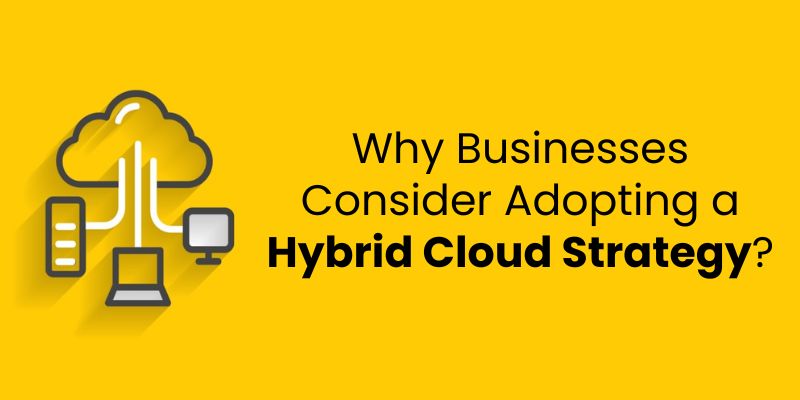In the rapidly evolving landscape of cloud computing, businesses are faced with critical decisions regarding their IT infrastructure. One such decision gaining prominence is the adoption of a hybrid cloud strategy. This approach combines the benefits of on-premises and cloud solutions, providing businesses with a flexible and scalable environment. In this blog post, we will delve into the reasons Why Businesses Consider Adopting a Hybrid Cloud Strategy. Unlock your data science potential! Embark on a cloud computing journey with our Cloud Computing Training in Chennai. Join now for hands-on learning and expert guidance at FITA Academy.
What is Hybrid Cloud Strategy?
Before delving into the advantages, it’s essential to understand what a hybrid cloud strategy entails. A hybrid cloud mix of private on-premises infrastructure with public cloud services, resulting in a cohesive and integrated environment. This approach allows businesses to leverage the strengths of both on-premises and cloud solutions, fostering a more versatile IT infrastructure.
Enhanced Flexibility and Scalability
One of the reasons businesses opt for a hybrid cloud strategy is the enhanced flexibility it offers. With a hybrid approach, organizations can scale their operations seamlessly. Critical workloads can be handled non private infrastructure cloud computing, but non sensitive information or peak high workloads are best cloud managed on the public cloud. This flexibility means that businesses can respond to changing demands while preserving performance and security.
Cost Efficiency and Optimization
Cost considerations are pivotal for businesses of all sizes. Adopting a hybrid cloud strategy allows organizations to optimize costs by strategically allocating workloads. Capital-intensive data or sensitive data can modify in the on-premises environment, while low critical workloads can be hosted in the more cost-effective public cloud. This not only minimizes infrastructure costs but also provides a pay-as-you-go model for certain services, optimizing overall IT expenditure. Learn all the cloud computing techniques and become an cloud computing developer. Enroll in our Cloud Computing Online Course.
Improved Security and Compliance
In the digital era, organizations continue to prioritize security. A hybrid cloud strategy allows businesses to adjust their security measures to the specifics of their data and apps. Sensitive data or regulated data information can be retained on-site information, which allows for direct business management and compliance with company specific standards. Meanwhile, less sensitive data may take use of the strong security protections offered by reliable public cloud providers.
Seamless Data Management and Accessibility
Data is a significant asset for organizations, and proper management is essential. Hybrid cloud solutions provide the finest data management by give enterprises to store and access data from both on-premises and cloud settings. This guarantees that data is easily exchanged and retrieved, encouraging cooperation across teams regardless of physical location.
Mitigating Downtime and Enhancing Disaster Recovery
Business continuity is a critical aspect of any IT strategy. A hybrid cloud approach minimizes downtime risks by providing redundancy and backup options. In the event of a disaster, information can be backed up and recovered from the cloud, ensuring business operations can resume promptly. This not only enhances disaster recovery capabilities but also contributes to overall resilience.
A hybrid cloud strategy give enterprises with a comprehensive approach that combines on-premises and cloud solutions to improve flexibility, cost efficiency, security, and data management. This strategic decision corresponds with the dynamic needs of modern businesses, preparing them for success in an ever-changing technology environment. Explore top-notch Advanced Training Institute in Chennai. Unlock computing excellence with expert guidance and hands-on learning experiences.

